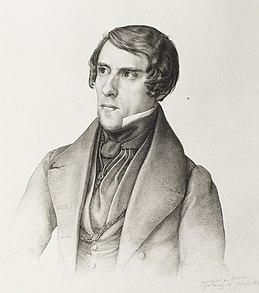
Altenkirchen is a town in Rhineland-Palatinate, Germany, capital of the district of Altenkirchen. It is located approximately 40 km east of Bonn and 50 km north of Koblenz. Altenkirchen is the seat of the VerbandsgemeindeAltenkirchen-Flammersfeld.

The Wilhelmsgymnasium is a gymnasium in Munich, Germany. Founded in 1559 to educate local boys, it is now coeducational.

The Luitpold-Gymnasium is a secondary school in Munich, Germany. It was established by Prince Luitpold of Bavaria in 1891 as "Luitpold-Kreisrealschule" to serve the eastern part of the city and its suburbs. It stood in the Alexandrastrasse opposite the National Museum.
Eberhard-Ludwigs-Gymnasium is a gymnasium in Stuttgart established in 1686.

Jelgava Gymnasium or Academia Petrina is the oldest higher educational establishment in Latvia. Based on an idea by Friedrich Wilhelm von Raison, it was established in Mitau, capital of the Duchy of Courland and Semigallia, by Duke Peter von Biron in 1775. The duke wanted to attract professors like Immanuel Kant and Johan Gottfried Herder, but they refused.

Wilhelm (William) Dittenberger was a German philologist in classical epigraphy.

The Wilhelmsgymnasium, originally the Königliches Wilhelms-Gymnasium, was a gymnasium in the Tragheim quarter of Königsberg, Germany.

The Collegium Fridericianum was a prestigious gymnasium in Königsberg, Prussia. Alumni were known as Friderizianer.

Anton Wilhelm Ertl was a German lawyer and geographer.

Gebhard Ludwig Himmler was a German Nazi functionary, mechanical engineer and older brother of Reichsführer-SS Heinrich Himmler.
The Friedrich Wilhelm Gymnasium was a secondary school (gymnasium) in Berlin that existed from 1797 until the end of the Second World War.

Angelo Jank was a German animal painter, illustrator and member of the Munich Secession. He specialized in scenes with horses and riders.

Richard Baldus was a German mathematician, specializing in geometry.

Georg Kaspar Nagler was a German art historian and art writer.

Karl Ignatz Freiherr von Schrenck was a Bavarian administrative lawyer and a deputy in Bavaria who served for a time as Minister-President of Bavaria.

Ignaz Saal was an operatic bass and comedian. He was for decades a member of the Imperial Court Theatre in Vienna. Saal performed the bass parts in the world premieres of Haydn's oratorios Die Schöpfung and Die Jahreszeiten, and appeared as Don Fernando in the premiere of Beethovens Fidelio on 23 May 1814 at the court theatre.
Theodor Kroyer was a German musicologist.
Hermann Mager was a German politician and teacher.
Heinz Gerhard Pringsheim was a German music critic, composer, pianist and radio contributing editor.
This page is based on this
Wikipedia article Text is available under the
CC BY-SA 4.0 license; additional terms may apply.
Images, videos and audio are available under their respective licenses.













